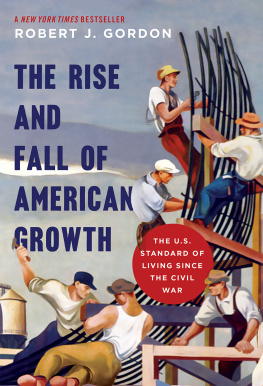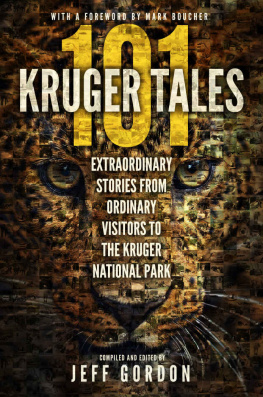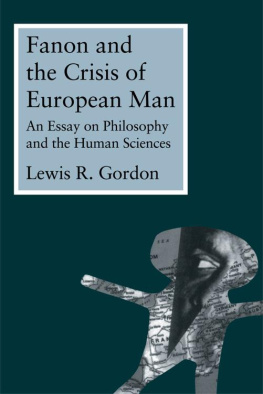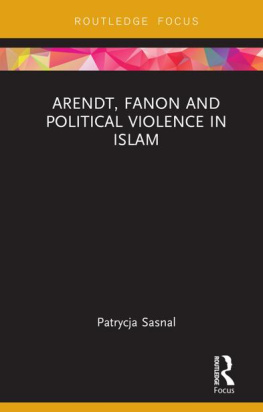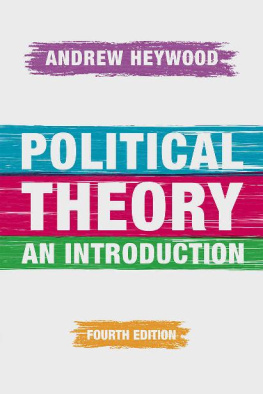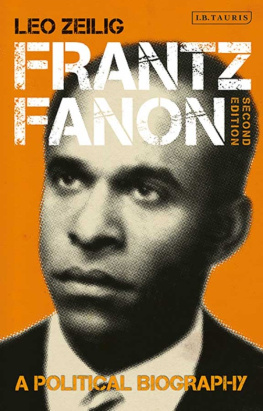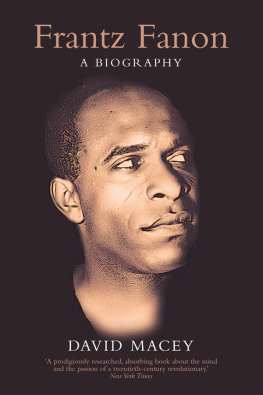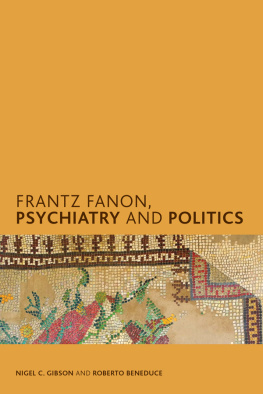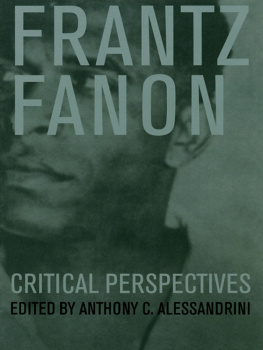Gordon - Creolizing political theory reading Rousseau through Fanon
Here you can read online Gordon - Creolizing political theory reading Rousseau through Fanon full text of the book (entire story) in english for free. Download pdf and epub, get meaning, cover and reviews about this ebook. year: 2014, publisher: Fordham University Press, genre: Politics. Description of the work, (preface) as well as reviews are available. Best literature library LitArk.com created for fans of good reading and offers a wide selection of genres:
Romance novel
Science fiction
Adventure
Detective
Science
History
Home and family
Prose
Art
Politics
Computer
Non-fiction
Religion
Business
Children
Humor
Choose a favorite category and find really read worthwhile books. Enjoy immersion in the world of imagination, feel the emotions of the characters or learn something new for yourself, make an fascinating discovery.

Creolizing political theory reading Rousseau through Fanon: summary, description and annotation
We offer to read an annotation, description, summary or preface (depends on what the author of the book "Creolizing political theory reading Rousseau through Fanon" wrote himself). If you haven't found the necessary information about the book — write in the comments, we will try to find it.
Gordon: author's other books
Who wrote Creolizing political theory reading Rousseau through Fanon? Find out the surname, the name of the author of the book and a list of all author's works by series.
Creolizing political theory reading Rousseau through Fanon — read online for free the complete book (whole text) full work
Below is the text of the book, divided by pages. System saving the place of the last page read, allows you to conveniently read the book "Creolizing political theory reading Rousseau through Fanon" online for free, without having to search again every time where you left off. Put a bookmark, and you can go to the page where you finished reading at any time.
Font size:
Interval:
Bookmark:
CREOLIZING POLITICAL THEORY
just ideas
transformative ideals of justice in ethical and political thought
series editors
Drucilla Cornell
Roger Berkowitz
CREOLIZING POLITICAL THEORY
READING ROUSSEAU THROUGH FANON
Jane Anna Gordon
FORDHAM UNIVERSITY PRESS
NEW YORK
2014
Copyright 2014 Fordham University Press
All rights reserved. No part of this publication may be reproduced, stored in a retrieval system, or transmitted in any form or by any meanselectronic, mechanical, photocopy, recording, or any otherexcept for brief quotations in printed reviews, without the prior permission of the publisher.
Fordham University Press has no responsibility for the persistence or accuracy of URLs for external or third-party Internet websites referred to in this publication and does not guarantee that any content on such websites is, or will remain, accurate or appropriate.
Fordham University Press also publishes its books in a variety of electronic formats. Some content that appears in print may not be available in electronic books.
Library of Congress Cataloging-in-Publication Data
Gordon, Jane Anna, 1976
Creolizing political theory : reading Rousseau through Fanon / Jane Anna Gordon. First edition.
pages cm. (Just ideas)
Includes bibliographical references and index.
ISBN 978-0-8232-5481-1 (hardback) ISBN 978-0-8232-5482-8 (paper)
1. Rousseau, Jean-Jacques, 17121778Political and social views. 2. Fanon, Frantz, 19251961Political and social views. 3. General will. 4. Legitimacy of governments. 5. Political sciencePhilosophy. I. Title.
JC179.R9G67 2014
320.01dc23
2013019537
Printed in the United States of America
16 15 14 5 4 3 2 1
First edition
In loving memory of Yvonne Patricia Solomon Garel (or Grandma Pat), Jack Garel, Thelma Young, David Levy, Don Belton, Gary Tobin, and William R. Jones
and
to kerido Lewis, in whom so many worlds converge and are made new
Contents
I had the unique good fortune of undergoing two periods of concentrated intellectual apprenticeship. In a fundamental way, this book is my effort to synthesize them in ways that pay due service to the greatest strengths of both, creatively making them speak to each other where they otherwise might not with losses that would be both scholarly and political.
The first of these periods of education involved my graduate studies at the University of Pennsylvania during a moment of its transition. I was drawn to the institution by Nancy Hirschmann, Ellen Kennedy, Andrew Norris, Anne Norton, Rogers Smith, and Bob Vitalis. I deliberately sought and found through their mentorship a thoroughly unconventional training in political theory for which each year makes me more grateful. From Ellen, I particularly appreciated her conveying of the gravitas that informs German social theory. This seemed to demand a reflexive repugnance toward much of the overly sanguine and self-congratulatory work that goes on within the discipline of political science. From Anne, there was first the challenge and inspiration as a political theorist to aim also to be a writer and second to refuse the parochialism that would suggest that one could undertake an adequate study of politics while ignoring urgent and exciting developments in other fields. Countless conversations with Bob about unlikely connections stimulated some of the more creative ideas that I have had and a better sense of both the pleasures and frustrations of maintaining commitments that are considered marginal to the academic domain in which one primarily resides. Rogers offered a remarkable model of what is required of committed graduate teaching and of what can and cannot be achieved by tirelessly involving oneself in a critical way in hegemonic debates about race and racism in US life. My education at Penn was also enriched immeasurably by the life-affirming, funny, and insightful Kahlil Williams, Amel Ahmed, Cheng Chen, Lia Howard, and Justin Wert.
The founding and early meetings of the Caribbean Philosophical Association were for me, and many others, a second, simultaneous training. Those who undertook the magnificent tasks under the not-so-humble motto of shifting the geography of reason, first George Belle, B. Anthony Bogues, Patrick Goodin, Lewis Gordon, Clevis Headley, Paget Henry, Nelson Maldonado-Torres, Charles Mills, and Supriya Nair, soon joined by Marilyn Nissim-Sabat, Marina Banchetti-Robino, Brinda Mehta, Michael Monahan, and Kristin Waters are exemplary in their combination of intellectual vision and collegiality. They have cultivated a movement of thought that breaks with so much of the inevitable decadence of thinking within the worlds reigning power. Their efforts have oriented the substance and form of all of my writing. Among them, requiring separate mention, is Paget, not only for his friendship and ongoing conversation from which I always learn but also for the opportunity to guest-edit with Neil Roberts the issue of the C. L. R. James Journal through which so many ideas explored here developed their greater precision.
My colleagues at Temple University heard the core ideas of this book four years agoin Joe Schwartz and Heath Fogg Daviss case, twice. I am grateful to have had the chance to work together with faculty specializing in political theory in the Department of Political Science to build a vibrant and growing graduate student community that included the talented, engaging, and integrity-filled Matthew Smetona, Greg Graham, John Hykel, Jim Delise, Ashish Vaidya, Danielle Scherer, Nick Catsis, Erin Meagher, Justin Murphy, Brett Miller, Alex Melonas, Francis Boyle, Arnold Kim, Nathan Schrader, and Desiree Craig. I had formally presented these ideas for the first time on Temples campus at the Center for Humanities at Temple (CHAT). The initial feedback that I received from Hilary Dick and Miriam Solomon was very useful. I was subsequently fortunate to be a year-long fellow at the CHAT where challenges concerning how I should and should not employ the concept of creolization were genuinely fruitful. For their central participation in these discussions, I would like to thank Liz Varon, Hilary Dick, Talissa Ford, Oliver Gaycken, Jeremy Schipper, Matthew Johnson, Byron Lee, Lior Levy, Holger Lowendorf, Nyama McCarthy-Brown, Nicole Noll, Chiaoning Su, Amy Woodworth, Andrew Diemer, and Janet Neigh. Requiring separate mention is Peter Logan, who is ultimately responsible for everything that takes place in that very special domain that he has cultivated on the top floor of Gladfelter Hall. For the tireless spirit with which he undertakes this organizational work from which so many of us benefited and for his terrific friendship, I thank him. Beyond the Department of Political Science and CHAT, the people who helped make Temple an intellectual home were Rebecca Alpert, Laura Levitt, David Watt, Ruth Ost, Paul Taylor, Terry Rey, and the members of the Committee on the Status of Women (CSW), especially Joyce Lindorff, Abbe Forman, Melissa Gilbert, and Nilgun Anadolu-Okur. Not part of the faculty at Temple but also residing in Philadelphia is Ros Dutton, whose insights and support have been the source of multidimensional growth indispensable to the completion of this work.
Since composing the initial manuscript that became this book, I presented the creolization pieces of it on two major occasions, first at the American Political Science Association conference in Washington, DC, in 2010 and then at the Western Political Science Association meeting in San Antonio, Texas, in 2011. I particularly appreciated the comments and questions posed at the first presentation by Laura Grattan and the conversation on and beyond the two-part panel at the second with Keisha Lindsay, Barnor Hess, Ed Barvosa, Michaelle Browers, Cricket Keating, Farah Godrej, and Rita Dhamoon. Bonnie Honig also read and commented thoroughly on these pieces with just the combination of enthusiasm and criticism that stimulated reflection that improved them.
Next pageFont size:
Interval:
Bookmark:
Similar books «Creolizing political theory reading Rousseau through Fanon»
Look at similar books to Creolizing political theory reading Rousseau through Fanon. We have selected literature similar in name and meaning in the hope of providing readers with more options to find new, interesting, not yet read works.
Discussion, reviews of the book Creolizing political theory reading Rousseau through Fanon and just readers' own opinions. Leave your comments, write what you think about the work, its meaning or the main characters. Specify what exactly you liked and what you didn't like, and why you think so.

